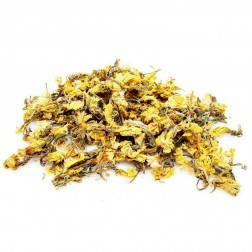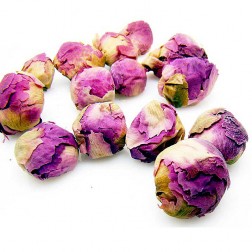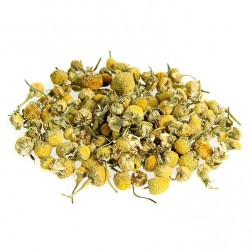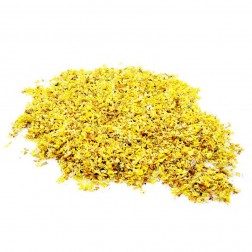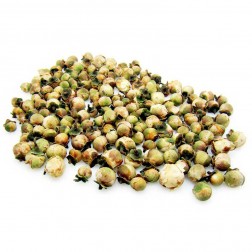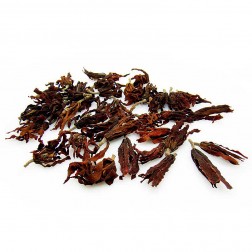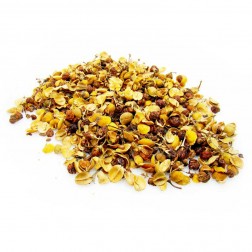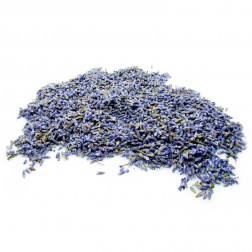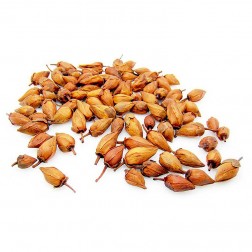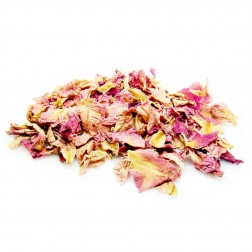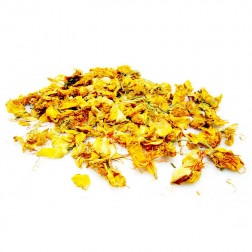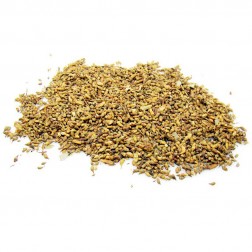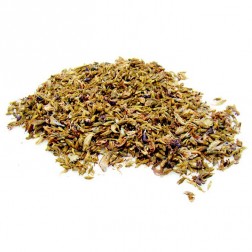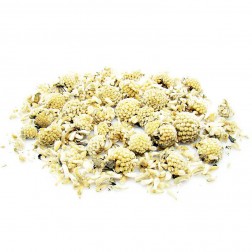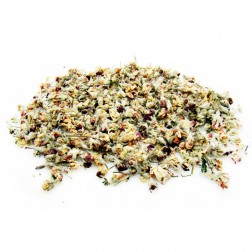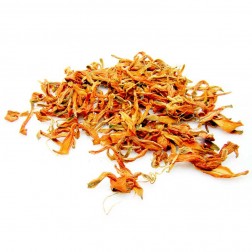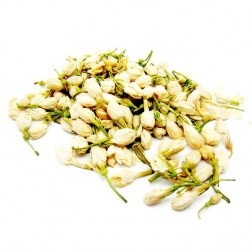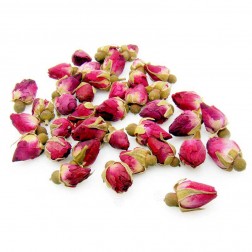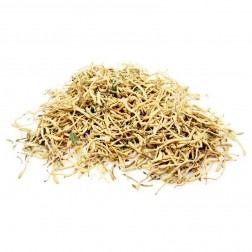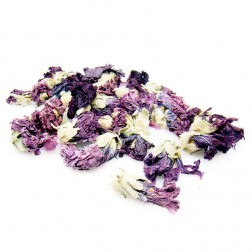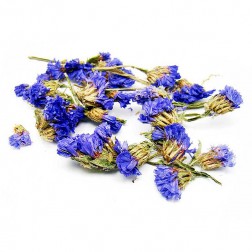Description
Details
Chrysanthemum Buds Flower Tea---A Refreshing Drink to Help Clear the Head and Strengthen the Lungs.The Chrysanthemum buds have a very sweet milk fragrance, and taste smooth, refreshing.
Try brewing it with milk, experience the nature milk flavor from the flowers!
Chinese Name: Ju hua, Tai Ju
Medical Name: Flos Chrysanthemi
Latin Name: Chrysanthemum morifolium
The Chrysanthemum Tea is one of the most popular Chinese Teas in China. It is selected from top quality Chrysanthemum and made using a warm drying process. Drunk with meals it helps to aid digestion, especially of greasy foods. It is also commonly taken to help strengthen the lungs and relieve head congestion. When made from fresh flowers, the flowers can be applied to the eyes to relieve dryness and itching.
In China, chrysanthemum tea is now being recommended for office workers exposed to Video Display Terminals (VDTs). Chrysanthemum flowers (Chrysanthemum morifolii), known as Ju Hua, have been used in Traditional Chinese Medicine for centuries. They are found in many ancient formulas. But simple chrysanthemum flower tea is also a very common beverage in China, as the Chinese take into account the health benefits of the food and drink they consume.
Chrysanthemum is available in three forms, some stores just sell dried flowers, some market its extract, while some others provide herb tea with it. Now more and more people are enjoying the loving care of this "mum".
The Long History of Chrysanthemum
Originated in the far East, chrysanthemum is either an annual or perennial herb belongs to the large genre of the daisy family.
The chrysanthemum was said to have originated in China and was introduced to Japan by the 8th century C.E. The Japanese made the flower the official seal of the Emperor and today still figures prominently in the annals of traditional Japanese medicine.
As an important food supplement and tonic, chrysanthemum has been used in China for more than two thousand years. The Shen Nong's Canon of Materia Medica compiled before the Christian era, rated it as a superior herb the use of which prolongs life. Its central pharmaceutical properties recorded in traditional Chinese medical manuals, are, "pacifying the liver and brightening the vision, relieving fever and removing toxins".
Cuisines with chrysanthemum flowers abound in China, especially in the south. Guangzhou (Canton) features its famous Autumn Chrysanthemum Banquet, and Nanjing (Nanking) provides serialized cuisines with chrysanthemum flowers as the principal ingredient. Chrysanthemum liquor is also very popular.
The last eight emperors of China averaged 53 years and the average life span at that time was about 50. The famous Empress Dowager Ci Xi who ruled China for 43 years however, lived 73 years, and was able to keep a young body! According to analysis, it was mainly because she adhered to a herbal diet. Of all the herb foods she loved and used chrysanthemum longevity jelly the most. During her last years she used it every day.
Health Benifits of Chrysanthemum
Ju Hua is classified as a cool, acrid herb which is good for relieving heat of the upper body-i.e. head and chest, being especially helpful for red, itchy eyes. It enters the Lung Meridian.
Chrysanthemum tea is a high class drink. It has been revered by generations of Chinese and Oriental peoples.
It is a nerve energizer, detoxifier and blood vessel softener in Chinese medicine to maintain healthy cholesterol level, normal blood pressure, improve blood flow. Used to "sharpen the vision and hearing, calm the nerves and clear the brain", it remains one of the most important supplementary food items and longevity elixir in China. It is an ideal beverage for cold and flu season, and for general health.
Modern analysis shows that chrysanthemum contains choline, vitamin A, B1, glycosides, adenine, amino acids, flavonoid, volatile oil, etc. It is said to have inhibiting effect on bacteria, including Staphylococcus aureus, Streptococcus hemolyticus B, Pseudomonas aeruginosa, Shigella dysenteriae, tubercle bacillus and dermatomycosis. It may have antivirus and antispirochete qualities, enhance capillary resistance, and it is used in Chinese traditional medicine to help cure high blood pressure, heart colic, coronary heart disease, arteriosclerosis and high cholesterol, relieve congestion, palpitation, short breath, dizziness, migraine headache, cold, flu, etc,. Regular use is believed to " lead to energetic body, better vision and hearing, alert brain and longevity".
Herbalist doctor's viewpoint
Chrysanthemum Flower Chinese Tea
A Refreshing Drink to Help Clear the Head and Strengthen the Lungs.
The following are the health benefits attributed to chrysanthemum tea:
Chrysanthemum Tea may help lower blood pressure and consequently also help in the treatment of other related ailments, i.e. angina and other heart problems.
Chrysanthemum Tea may help relieve headaches.
Chrysanthemum Tea may help in the treatment of colds, fever and the flu.
Chrysanthemum Tea may help in the treatment of tinnitus.
Chrysanthemum Tea may help in the treatment of such skin problems as acne, boils and sores.
Chrysanthemum Tea is believed to contribute to clear vision.
Chrysanthemum Tea may help in the alleviation of dizziness.
Chrysanthemum Tea is believed to contribute to alertness.
Drinking Tips
First, pour boiling water over a few grams of Chrysanthemum Buds. Strain the buds and pour away the water. You could consider this step as "waking the Chrysanthemum Buds up"
Then, pour the water over the buds again and wait for 3-5mins. Then strain the Chrysanthemum Buds, add rock sugar to taste (optional) and enjoy.
This Chrysanthemum Buds Tea has a nature milk flavor. Just like the sweet smell of a baby.
So it's the best match of milk.
Warm up the milk and mix the Chrysanthemum tea soup into the milk.
Or you could pour the milk into the Chrysanthemum tea directly. It will be a very interesting experience to watch the little, golden buds floating on the milk.
Additional
Additional Information
| Wholesale Notice | Have a Question about Wholesale? Please check the detailed instruction page here. |
|---|---|
| SKU | ESF-010 |
| Chinese Name | 胎菊(tāi jú) |
| Other Names | Baby Chrysanthemum |
| Teaware | Glass Pot, Glass(Tumbler), Piao Yi Tea Maker |
| Water Temperature | 80℃(176℉)~85℃(185℉) |
| Steeping Instructions | Place herbals into the glass pot→Add hot water→Steep for 3-5 minutes(A candle warmer could be used to achieve better results) |
| Storage | Seal tightly, store in a cool, dry place away from sunlight and odour. |
| Country of Manufacture | China |
| Price | $3.50 |
| Packing & Weight | 50g~500g/bag. Default packing with aluminium coated kraft paper bag. |
Reviews
If you have any question concerns about our products or don't find what you need on our site, please contact us via [email protected] and we'll reply soon!

